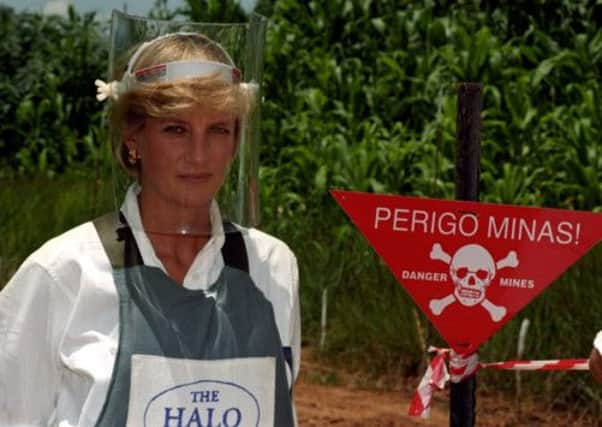Andrew Eaton-Lewis: Humanising Princess Diana


The German film director Oliver Hirschbiegel, who made Downfall about Adolf Hitler’s final hours in his Berlin bunker, has made a biopic of Princess Diana.
Last week, a trailer appeared. It is, alarmingly, almost as mawkish as Candle In The Wind – not the sweet, simple song about Marilyn Monroe, but the butchered funeral version, a fawning atrocity that was the musical equivalent of being force-fed treacle from a Royal mug (“You called out to our country, and you whispered to those in pain. Now you belong in heaven and the stars spell out your name,” it went, in case you’d forgotten the full horror.)
Advertisement
Hide Ad“An icon… adored by millions,” the trailer’s text tells us, “who became a people’s princess,” as stirring piano music swells and Naomi Watts looks radiant while ticking off a list of Diana things (hugging a black child, running away from photographers, sunbathing on a yacht etc).
I sense I may have lost some of you already. Perhaps you adored Diana and, when she died, felt a sense of personal loss. Perhaps you really liked that song. Let’s part company here then. You probably think I’m a callous cynic, emblematic of the media who hounded her to death. Well, I think you’re probably a celebrity-obsessed, self-deluding idiot, so there.
Still with me? Right, what I really wanted to talk about was the intriguing idea of a film about Diana being made by a director best known for humanising Hitler by showing him being charming and kind as well as unspeakably cruel. This was, even in 2004, a brave, provocative thing to do, and caused widespread unease, in Germany in particular. The 2002 film Max, which imagined an alternative future for young Adolf as a sensitive painter, mentored by a Jew, generated similar unease. The point of both films was simple: even history’s worst villains are real, complex human beings, and understanding them is impossible without acknowledging this.
With Diana, Hirschbiegel has the opposite problem. How do you humanise a woman who, for some people, is a kind of secular saint? I’d like to think Hirschbiegel’s nuanced treatment of Hitler is the reason why he got this job – rather than it being because, after his next two features had considerably less impact, he was suddenly cheap. The trailer signs off with the words: “The legend is never the whole story.” It’s a line as clichéd as everything else in this first one-minute clip, but it offers a flicker of hope that the actual film might contain something more. «
Twitter: @Aeatonlewis